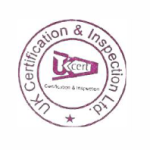Get The Best Harvest
Basic Types of Organic Fertilizers :
Organic Fertilizers
Organically Pure, Naturally Healing
Organic Manure Fertilizer :
Organic Manure
Manure for the farm comes from cow, sheep, poultry and horses. Pretty self-explanatory. Manure is known as a “complete” fertilizer; it has a lot of organic matter. Manures are most valuable as organic soil amendments and mulches.
Organic Manure
Organic fertilizers are safe and healthy for the plants
Organic fertilizers are safe for your plants, environment, and even your pets. Whereas chemical fertilizers are produced using a significant amount of fossil fuels, it harms the health of the soil in the long run, and it often runoff to nearby water sources like ponds or lakes and pollutes them.
Organic fertilizers work slowly and steadily but always wins the race
The soil breaks down the organic fertilizers slowly and then the soil and the plants get all the nutrients they need. Chemical fertilizers are speedy but they can overfeed the plants, it harms the health of the soil and can damage the plants by burning them.
Organic fertilizers work well for the soil
Using organic products improves the texture of the soil, allowing it to hold the water for a longer period of time, and increase the fungal and bacterial growth in the soil. They not only help your plants grow but also improve the health of the soil. Whereas, chemical fertilizers make the soil unproductive by depleting the nutrients of the soil over a period of time.
Organic fertilizers are easy to use
They are easy to use and apply, simply add them to your soil or spray them to your leaves. No matter how you use them, organic fertilizers add countless benefits to your plants and farm by providing them with all the nutrients. Whereas, chemical fertilizers can be hazardous, not only for the plants but also for your pets. You have to be careful while applying it to your greens.
Feed the Soil
Compost
Compost
Compost, crumbly mass of rotted organic matter made from decomposed plant material, used in gardening and agriculture. Compost is especially important in organic farming, where the use of synthetic fertilizers is not permitted. Compost improves soil structure, provides a wide range of nutrients for plants, and adds beneficial microbes to the soil. The maximum benefits of compost on soil structure (better aggregation, pore spacing, and water storage) and on crop yield usually occur after several years of use.
How Good Compost Is Prepared?
Compost making is the process of decomposing organic wastes in a pit. Site for compost making is selected should be at a high level and water should not pond during monsoon season. Pit should be of 3’ depth and 6’ to 8’ width. Length may be of any convenient size. The process is as follows:
- Make slurry of the cattle dung with water.
- Prepare 6” layer of organic wastes – plant residues, sweepings from the cattle shed, waste fodder, dried plants stalks and leaves etc. and sprinkle water to just moisten it. (Over watering should be avoided)
- Cover with the layer with urine earth and cattle dung slurry.
- Add 5 to 10 kg of super phosphate for every 10 tons of organic wastes.
- Repeat the process of putting such layers till the pit is full.
- Close the pit with urine earth, waste fodder and then heap the soil till it gets convex shape (about 1 to 1.5’ above the ground) so that the rainwater rolls away.
- After six months compost is ready to apply to the fields.
Compost
Extra Care For The plants
Organic Fertilizer Farms
Farms






